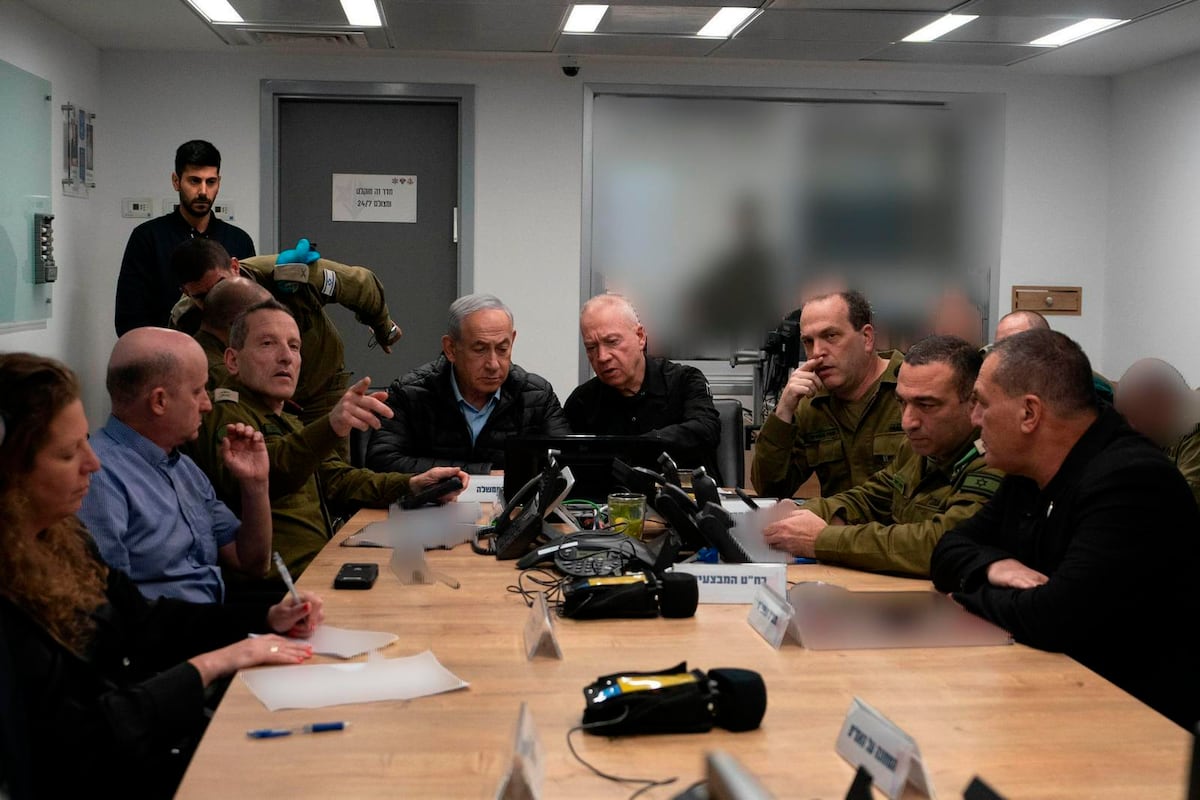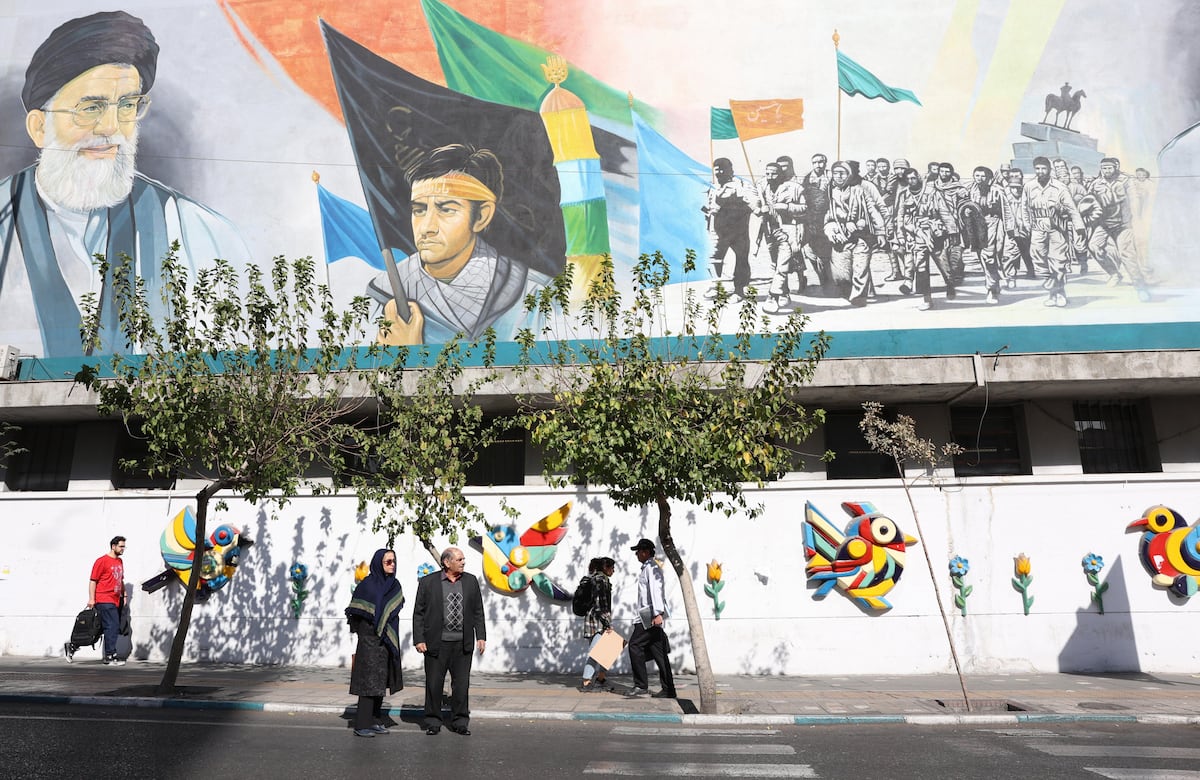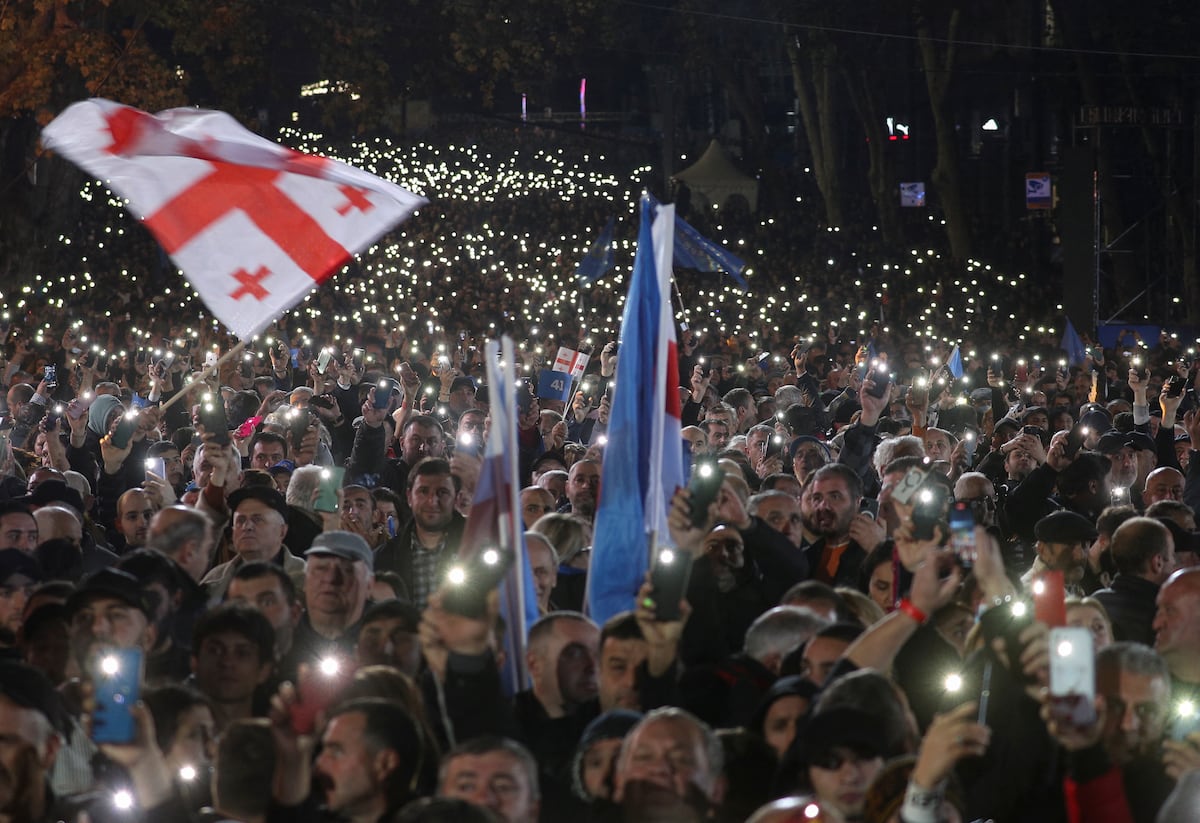The Israeli army bombed Iran in three waves in the early hours of this Saturday. The first began with at least five powerful explosions in Tehran and a nearby town, Karaj, according to state television and witnesses. Then two more waves were recorded. At around 06:00 (05:00 in mainland Spain), the Israeli military spokesman, Daniel Hagari, announced the end of the attacks, which he defined as “precise” and directed “against military objectives in response to months of continuous attacks.” The Government of Benjamin Netanyahu, which has followed the operation from a bunker in a barracks, promised on the 1st to avenge Tehran’s aggression against its territory with 200 missiles and indicated that it would do so at the time and in the manner it deemed appropriate, playing with the surprise factor.
The Syrian state news agency has also reported attacks, shortly before, against military installations in the south and center of the country. Iran – and neighboring Iraq – has closed its airspace until 9:00 a.m. local time (7:30 a.m. Spanish peninsular time), as announced by the country’s Civil Aviation Organization. Israel, until 08:30. Tehran authorities claim that their anti-aircraft defenses have worked, although they acknowledge the death of two soldiers and “limited damage” while announcing a “proportionate reaction,” according to a semi-official agency cited by Reuters. Israel has warned that it will be “forced to respond” if it “makes the mistake of starting a new round of escalation.”
The scope of the attacks is unknown, although they do not appear to have been directed against nuclear or oil facilities, as the United States had requested of Israel to prevent them from leading to open regional war. The official Fars agency, of the Revolutionary Guard, has confirmed attacks on military bases in the west and southwest of Tehran and, in general, the Iranian authorities rushed to take the edge off, ensuring that their anti-aircraft systems have “operated successfully” and that Some of the explosions heard corresponded to interceptions. They also tried to project an image of normality, with the dissemination of images of an intact refinery or the arrival of passengers at the capital’s international airport, shortly before closing the airspace.
“The Iranian regime and its proxies in the region have been relentlessly attacking Israel since October 7, on seven fronts, including direct attacks from Iranian soil,” Hagari said, referring to Gaza, the West Bank, Lebanon, Yemen, Iraq , Syria and Tehran, for which Israel blames the ayatollah regime as leader of the self-proclaimed “axis of resistance.” “Like any other sovereign country in the world, the State of Israel has the right and duty to respond” and “our defensive and offensive capabilities are fully mobilized,” the spokesperson added, emphasizing that they will do “everything necessary to “defend the State of Israel and the people of Israel.”
Netanyahu followed the evolution of the Israeli aviation bombings with the core of his collaborators, among whom was the Minister of Defense, Yoav Gallant, and the Chief of the General Staff, Herzi Halevi. Gallant said a few days ago that the response would be “lethal” and “surprising.”

“Self-defense”
White House National Security Council spokesman Sean Savett confirmed that Israel was carrying out “localized attacks against military targets in Iran” in what he defined as a “self-defense exercise.” Israel had been preparing retaliation for days, both internally and with the help of Washington. In fact, this same week, US Secretary of State Antony Blinken began his 11th regional tour during the conflict in Tel Aviv and Jerusalem, in which he addressed the attack.
Days before, the Pentagon had sent Israel an anti-aircraft battery capable of reinforcing its already sophisticated defense system. He did so in anticipation that Tehran plans to respond to this Saturday’s attack and in the face of a growing shortage of anti-missile defenses in the Israeli army, according to the British newspaper Financial Times. It is managed by nearly a hundred US military personnel, according to the newspaper Yediot Ahronoth. The first who, officially, will be directly involved on the ground in the current war. This contingent will be in command of a THAAD (Terminal High Altitude Area Defense) anti-aircraft defense battery, a model that the United States already has deployed in other areas of the Middle East.
It is the second time this year that both countries exchange attacks in their territories, something unprecedented in their history and which has generated fear that the progressive extension of the conflict in the Middle East (currently with the invasion of Lebanon) will end up degenerating into a war. open and direct between them, after years of hidden confrontation. The first, in April, originated in the Israeli bombing of an Iranian diplomatic building in Damascus that killed 13 people, including three senior members of the Revolutionary Guard. The ayatollah regime responded with 300 missiles and drones. The attack was almost choreographed, to show muscle without giving rise to violent retaliation, and Israel intercepted almost all of them with the help of its allies and opted for a limited retaliation, more focused on showing the ability to achieve the nuclear program than on causing damage.
Both parties then turned the wrong page. Until three months later, when Israel killed Hamas leader Ismail Haniye in Tehran (who had attended the inauguration of the new president, Masoud Pezeshkian, as a guest), and the leadership of its Lebanese ally, Hezbollah, including its top leader, Hasan Nasrallah. Iran promised revenge that took the form of 200 ballistic missiles on October 1 that caused no Israeli deaths (only one Palestinian, in the West Bank, due to the fall of an intercepted projectile).
Israel then promised the new retaliation that it carried out this Saturday. This Wednesday, after weeks of waiting, his Minister of Defense told the Air Force pilots that “everyone” would understand, when the attack occurred, what their “preparation and training process” consisted of.
After the bombing, US Secretary of Defense Lloyd Austin reiterated in a brief statement his support for Israel’s “security and right to self-defense,” after having held a conversation with his counterpart Yoav Gallant. Washington considers that the attack has been “proportionate” and focused “only on military objectives,” which should avoid an escalation and an Iranian counterattack. For its part, Saudi Arabia condemned the attack as a “violation” of Iranian sovereignty and international law, and urged the parties to act with maximum restraint and calling on the international community to seek to de-escalate conflicts in the region. region. British Prime Minister Keir Starmer declared early this Saturday that Iran should not respond to the attack and urged restraint on all sides, Reuters reports.









